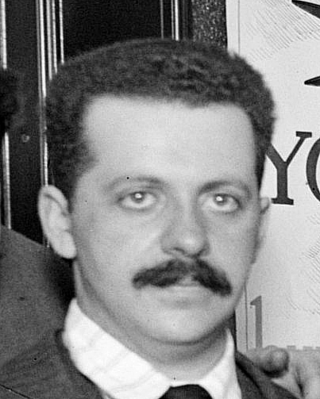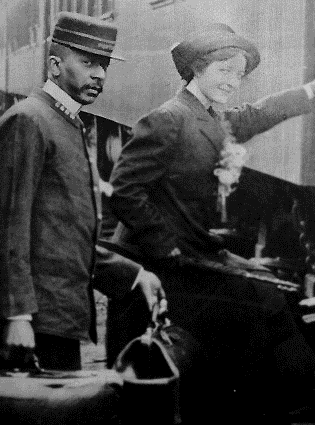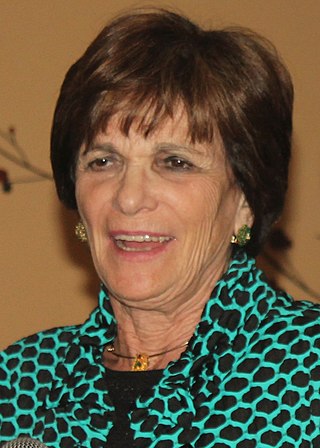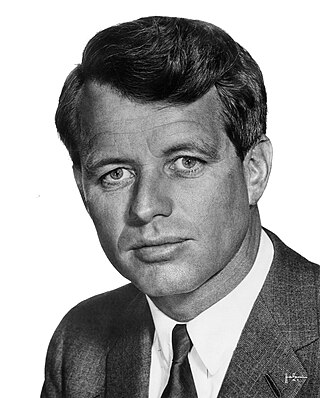
Joseph Raymond McCarthy was an American politician who served as a Republican U.S. Senator from the state of Wisconsin from 1947 until his death at age 48 in 1957. Beginning in 1950, McCarthy became the most visible public face of a period in the United States in which Cold War tensions fueled fears of widespread communist subversion. He alleged that numerous communists and Soviet spies and sympathizers had infiltrated the United States federal government, universities, film industry, and elsewhere. Ultimately, he was censured for refusing to cooperate with, and abusing members of, the committee established to investigate whether or not he should be censured. The term "McCarthyism", coined in 1950 in reference to McCarthy's practices, was soon applied to similar anti-communist activities. Today, the term is used more broadly to mean demagogic, reckless, and unsubstantiated accusations, as well as public attacks on the character or patriotism of political opponents.

Leroy Robert "Satchel" Paige was an American professional baseball pitcher who played in Negro league baseball and Major League Baseball (MLB). His career spanned five decades and culminated with his induction into the National Baseball Hall of Fame.

The 1988 United States presidential election was the 51st quadrennial presidential election held on Tuesday, November 8, 1988. The Republican nominee, incumbent Vice President George H. W. Bush, defeated the Democratic nominee, Governor Michael Dukakis of Massachusetts.

Michael Stanley Dukakis is an American retired lawyer and politician who served as governor of Massachusetts from 1975 to 1979 and again from 1983 to 1991. He is the longest-serving governor in Massachusetts history and only the second Greek-American governor in U.S. history, after Spiro Agnew. He was nominated by the Democratic Party for president in the 1988 election, losing to the Republican nominee, Vice President George H. W. Bush.

Edward Louis Bernays was an American pioneer in the field of public relations and propaganda, and referred to in his obituary as "the father of public relations". His best-known campaigns include a 1929 effort to promote female smoking by branding cigarettes as feminist "Torches of Freedom", and his work for the United Fruit Company in the 1950s, connected with the CIA-orchestrated overthrow of the democratically elected Guatemalan government in 1954. He worked for dozens of major American corporations, including Procter & Gamble and General Electric, and for government agencies, politicians, and nonprofit organizations.
William R. Horton, commonly referred to as "Willie Horton", is an American convicted murderer who was the subject of a major issue in the 1988 presidential election. Horton had committed violent crimes while on furlough from prison, where he was serving a life sentence without the possibility of parole for murder. Released for a weekend as the beneficiary of a Massachusetts furlough program, he failed to return, and was later recaptured and convicted of committing assault, armed robbery, and rape in Maryland, where he remains incarcerated.

A demagogue, or rabble-rouser, is a political leader in a democracy who gains popularity by arousing the common people against elites, especially through oratory that whips up the passions of crowds, appealing to emotion by scapegoating out-groups, exaggerating dangers to stoke fears, lying for emotional effect, or other rhetoric that tends to drown out reasoned deliberation and encourage fanatical popularity. Demagogues overturn established norms of political conduct, or promise or threaten to do so.

Pullman porters were men hired to work for the railroads as porters on sleeping cars. Starting shortly after the American Civil War, George Pullman sought out former slaves to work on his sleeper cars. Their job was to carry passengers’ baggage, shine shoes, set up and maintain the sleeping berths, and serve passengers. Pullman porters served American railroads from the late 1860s until the Pullman Company ceased operations on December 31, 1968, though some sleeping-car porters continued working on cars operated by the railroads themselves and, beginning in 1971, Amtrak. The term "porter" has been superseded in modern American usage by "sleeping car attendant", with the former term being considered "somewhat derogatory".

Katharine "Kitty" Dukakis is an American author. She is married to former Massachusetts governor Michael Dukakis.

The Society for the Prevention of Calling Sleeping Car Porters "George" (SPCSCPG) was founded as a joke by lumber baron George W. Dulany in 1914. Membership was open to all those whose first or last name was George. Its early members included Admiral George Dewey, who served as the group's first president, and writer George Ade. Dulany's secretary filled out and mailed more than 45,000 membership cards to people named "George" throughout the world, before Dulany retired from public life.

The Chattanooga Black Lookouts were a minor league Negro league baseball team based in Chattanooga, Tennessee. They were established in 1920, only to play for one season. They were reestablished in 1926 to play for two seasons, serving as a farm team of the Homestead Grays of the Negro Northern League.
Justin Daniel Kaplan was an American writer and editor. The general editor of Bartlett's Familiar Quotations, he was best known as a biographer, particularly of Samuel Clemens, Lincoln Steffens, and Walt Whitman.
John Joseph Moehringer, known by his pen name J. R. Moehringer, is an American journalist, memorist, and biographical ghostwriter. In 2000, he won the Pulitzer Prize for newspaper feature writing.
Anne Fleischman Bernays is an American novelist, editor, and teacher.
The Robert F. Kennedy presidential campaign began on March 16, 1968, when Robert Francis Kennedy, a United States Senator from New York, mounted an unlikely challenge to incumbent Democratic United States President Lyndon B. Johnson. Following an upset in the New Hampshire primary, Johnson announced on March 31 that he would not seek re-election. Kennedy still faced two rival candidates for the Democratic Party's presidential nomination: the leading challenger United States Senator Eugene McCarthy and Vice President Hubert Humphrey. Humphrey had entered the race after Johnson's withdrawal, but Kennedy and McCarthy remained the main challengers to the policies of the Johnson administration. During the spring of 1968, Kennedy led a leading campaign in presidential primary elections throughout the United States. Kennedy's campaign was especially active in Indiana, Nebraska, Oregon, South Dakota, California, and Washington, D.C. After declaring victory in the California primary on June 4, 1968, Kennedy was assassinated at the Ambassador Hotel in Los Angeles. He died on June 6, 1968 at Good Samaritan Hospital. Had Kennedy been elected president, he would have been the first brother of a former U.S. president to win the presidency himself.
The Mobile Tigers, a semi-professional baseball team composed entirely of African-American players based in Mobile, Alabama. It was one of several Black baseball teams based in Mobile during the same period and was a training ground for at least three players who later joined the Negro leagues.

Robert Francis Kennedy, also known by his initials RFK, was an American politician and lawyer. He served as the 64th United States attorney general from January 1961 to September 1964, and as a U.S. senator from New York from January 1965 until his assassination in June 1968, when he was running for the Democratic presidential nomination. Like his brothers John F. Kennedy and Ted Kennedy, he was a prominent member of the Democratic Party and is an icon of modern American liberalism.

Sarah H. Lisanby is an American psychiatrist who studies the use of neurostimulation devices to treat mental illness. Since 2015 she has directed the division of the National Institute of Mental Health(NIMH) working on translational research.
Theodore Harold White was an American political journalist and historian, known for his reporting from China during World War II and the Making of the President series.












